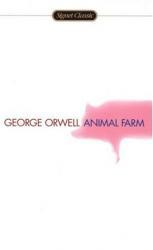
Animal Farm by George Orwell is a chilling tale of animals' uprising against humans to form an idyllic society. Without the rule of humans, animals expect equality, prosperity, and utopia. Over the course of this fable, however, the characters slowly devolve into new forms of oppression, greed, and violence against one another. Each chapter is more suspenseful than the last. The book is not entirely scary, but unsettling more than anything else. Orwell writes characters who are worth caring about, and antagonists that are easy to dislike.
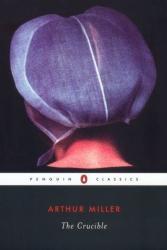
The Crucible is an allusion to the Salem Witch Trails of 1692. The main character, John Proctor, is a well-respected farmer in the small town of Salem, Massachusetts. When the first rumors that there are witches in Salem start stirring, Proctor pays little attention to them: he doesn't particularly believe in witchcraft and believes the townspeople are simply being hysterical. However, when his wife is accused of witchcraft, John has to put aside his personal feelings and find a way to save his wife and friends from hanging.
I hated the ending, but it made the play so much better. John develops significantly as a character. In the beginning, he only cared about protecting his reputation and hiding his affair, but in the final act, John became a martyr for the people of Salem. He's my favorite character in the play, and the movie is just as good!
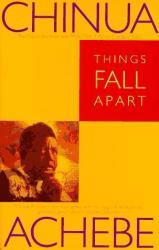
Things Fall Apart is about a Nigerian man, Okonkwo, who watches as his village is destroyed by European missionaries. Once a feared and respected man in his village of Umuofia, Okonkwo is reduced to eventually taking the orders of white men. Okonkwo is a hard and emotionless man who believes that anything that is not masculine is weak and therefore unworthy. When missionaries come to Umuofia, Okonkwo urges his fellow villagers to resist the attempts to diminish their culture and replace their government, but he's met with little support. Eventually, Okonkwo is banned, and when he returns, his village has completely changed.
I liked Things Fall Apart because it's a great book that challenged the idea of African savagery and portrays African culture, specifically Nigerian culture, as complex and intricate, and not the 'uncivilized' society many people view Africans as today. Okonkwo is an interesting character because his unwillingness to adapt to the new change represents an internal struggle many pre-colonized Africans faced in the wake of colonization. The ending is symbolic because it represents the ultimate death of culture as a result of European exploration.
Overall, the novel provides a beautiful insight into another culture often ignored in mainstream media.
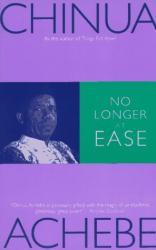
No Longer at Ease is the second installment in the African trilogy series. It is preceded by Things Fall Apart and follows the life of Obi, Okonkwo's grandson. Obi leaves his village in Nigeria to pursue an education in Britain where he meets Clara and falls in love with her. He returns to Nigeria and gets a job in civil service with the help of the board of elders. Obi is conflicted between his African culture and Western lifestyle, and heavy in debt, he takes a bribe.
Just like his grandfather, Obi is strong-minded and stubborn. He intends on marrying Clara although she is an osu, and begins taking bribes when he cannot pay his debts. He questions Nigerian traditions, and often compares Africa to Britain, ultimately positioning him in a place where he finds it nearly impossible to balance both cultures. However stubborn and sometimes reckless Obi is, he's a symbol of generational growth: unlike his grandfather and father, Obi ultimately understood that one culture was not better than the other, and change was imminent. Okonkwo, Nwoye, and Obi symbolize the different industrial stages of Nigeria and the social turmoil that followed, and they show the theme of western versus eastern culture clashes.
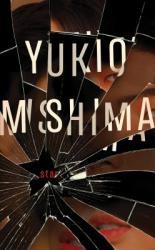
Rikio is a star and he likes the glamor, money and notoriety that comes with that lifestyle. His ears ring with the cheers, screams and exhortations of fans, mostly young women, who would kill for a moment with him. But it also means constant scrutiny, which has the 23-year-old celebrity struggling with his own anxieties and obsessions. What if those fans stop desiring him someday? The self-loathing star would rather be in character on a movie set than be himself.
Written shortly after starring in his first film, the late Yukio Mishima delivers a blunt, rich portrayal of a flawed young man lost between his public persona and private life. The novella, first published in 1961 and translated into English for the first time in 2019, is even more relevant now in today's 24/7 media landscape. Awards: Japan-U.S. Friendship Commission Prize for the Translation of Japanese Literature
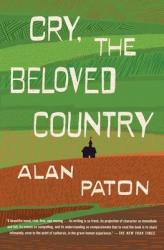
Cry, the beloved country
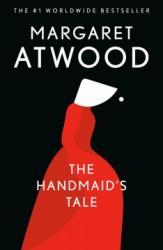
This novel followes the life of "Offred" who is part of the first wave of women during the Gilead regime. "Offred", whose real name is never revealed in the book, is a Handmaid whose sole responsiblity is to have children to sustain the rapidly declining Caucasion population. She tries to accept her life as a Handmaid, but is haunted by memories of the time before Gilead when she had a family and was free from the oppressive society she currently lives in.
I really liked how Atwood discloses minimal details about "Offred" which makes it clear that what is happening to her can happen to any woman. The novel is set in a utopian society, and it's very interesting to read the rationale behind the establishment of the Gilead regime and how sexism and anti-feminist retoric is a constantly looming problem in society. The novel is told through "Offred's" perspective, and personally, I felt she was a bland character, but her story itself was interesting. The book hangs off on a cliffhanger, and I'm definitely going to read the sequel and watch the Hulu adaption after!
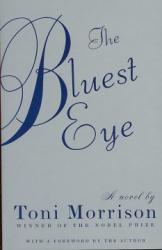
The Bluest Eye is about a young African-American girl named Pecola living in 1940's Ohio. Pecola lives with her brother and abusive parents who constantly tell her she is ugly because of her dark skin and kinky hair. On top of that, the children at her school bully her for the fact that her father is an alcoholic. All her life, Pecola has wanted blue eyes to feel pretty. Her only friends, Freida and Claudia try to defend her against the colorism in their community, but Pecola is unable to embrace her features and becomes obsessive over her desire for blue eyes.
One of the reasons I read this book is because of Morrison's writing style and her thematic elements. The book is very intellectually stimulating and gave me better insight into colorism and how it is still largely prevalent today in the African-American community. I really liked how Morrison used a young girl as a main character to show how these feelings of low-esteem and poor body image are started at a young age, and how the people around us influence our thoughts and feelings.
There are a lot of complex characters and you get to hear each of their stories about why they're the way they are. Claudia is my favorite character because she represents women and girls who challenge our ideas of beauty. The ending was sad, but it really brought light to how damaging our obsession with beauty is.
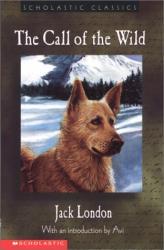
I was required to read The Call of the Wild for my Literature class. The story is about a lovable St. Bernard dog named Buck. At the start of the story, Buck lives in the cushy and comfy house of Judge Miller, but eventually winds up in the wild North of the Yukon. Serving as a sled dog, Buck passes through many owners, good and bad, and learns to answer the Call of the Wild. Overall, it was a pretty good book, but I would only give it Three Star review for these reasons:
1: As it is a classic, the book was written with an older style of English, which can be a little hard to understand. Older English can also take away some of the gravity in pressing situations.
2: There wasn’t quite as much action as I would have liked.
3: I enjoyed the book, but some of the action scenes may have been ruined by the Older English, although the Older English gives the reader a taste of how people communicated in the past. However, the characters, plot, and setting were developed well, so overall, Call of the Wild is a classic, and a quality work of literature, which still can be enjoyed today.
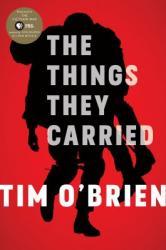
The Things They Carried is a memoir by Tim O'Brien about his experiences as an American soldier fighting in the Vietnam War. O'Brien was chosen to be drafted in 1968. This incident was extremely stressful for O'Brien who had taken a stand against the war, yet didn't want to disappoint his community. He pondered running away to Canada, but eventually decided to fight. The Things They Carried is a series of stories that are so well written. The work is a bit hard to understand just because O'Brien wrote it in a way that is not completely nonfiction. In the book, he explains this concept more in depth. Overall, I thought this book was a very well written, interesting, and educational story regarding the horrors of war from O'Brien's perspective in Vietnam.
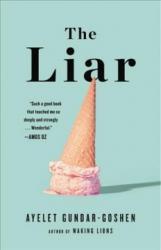
"Oh what a tangled web we weave/When first we practice to deceive’". This novel covers a life changing event of a 17 year old girl, Nofar, who has lived an average life and is about to enter her senior year of high school. During the summer, she works in an ice cream shop. One afternoon, she has unpleasant encounter with a formerly famous singer, and tells a lie that escalates events in both of their lives. Her life changes in an exciting and scary way, and his for the worse. As things progress, Nofar repeatedly considers the consequences of her words, which have a domino effect as her lie not only impacts her, but many around her as they get pulled into her dishonesty.
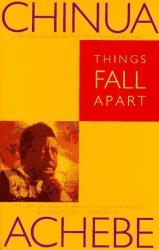
“Things Fall Apart” follows Okonkwo as he becomes a very successful man with many yams, several wives, and political power in Umuofia. The whole first part of the book focuses on his characterizing Okonkwo and showing what tribal culture was like. The author uses subtle references to Europeans to set up the main conflict of the book, European culture. Before the Europeans reach Umofia, Okonkwo accidentally kills a clansmen and is exiled. For the period of his exile, Okonkwo watches from the outside as his own village is changed radically by Christian missionaries.
Overall, I think this book is worth a read for the powerful theme, it wasn’t something I would want to read again because so much of the book was just about life in Umuofia, which was a bit mundane. Onkonkwo was also a pretty static character, there was no character development either. He just wanted to be the opposite of his father, was very strict, harsh, and closeminded. I did like the metaphors and proverbs in the book. I remember a metaphor that stood out in particular was, “Living Fire begets cold,
impotent ash.” I also enjoyed the later portion of the book where the Europeans missionaries arrive and the Onkonkwo provides a different perspective on the situation, and the theme is more clearly defined and developed.
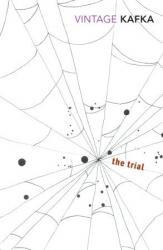
The Trial is a brilliant novel. Throughout the story the reader follows K., the protagonist, who tries to figure out what he was arrested and charged for. On his journey, K. meets several different types of people all which contribute to the book's questioning of bureaucracy and totalitarianism. Its finale left me a bewildered state, probing at the depths of existence and reality. Whether or not this feeling was a good one, I cannot tell, however Kafka's ability to use the mysteries of existentialism and expand upon them is truly amazing. I highly recommend this novel.
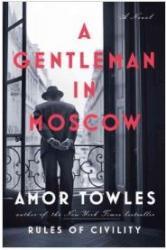
A Bolshevik tribunal puts Count Alexander Rostov under lifelong house arrest at The Hotel Metropol, a real luxury establishment located near the Kremlin, at the start of the Soviet Union. This man, who has never worked a day in his life, uses his considerable charm to carve out an existence while bearing witness to some very tumultuous decades. The people he meets, loves and opposes over the next 30 years help the nobleman determine a purpose in life under reduced circumstances. His evolution over the decades and his charm make the Count, who could have been insufferable in a different situation, someone many would befriend. This beautifully written second novel by the author of The Rules of Civility provides an interesting perspective on Soviet history, what it means to be a family and the reasons why to keep on living, even in a gilded prison.
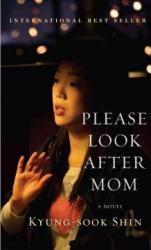
The word mom means unconditional love. When I saw the title it seems a little awkward. The mom who had taken care of her family an given endless love was missing; the elderly woman, suffering from dementia vanished in the crowd in the train station. She came to Seoul to celebrate her birthday withmher children. After her disappearance, the story started with a view from each family members. Each of them followed her trace to find her from their memories. While they struggling to find her, they gradually realized that the mom was ignored and had been neglected, whether intentionally or unintentionally. Her name was Park, So-nye; like meaning (So-nye = little
girl) of her name. She was an ordinary girl like all of us who had many dreams for her future. As time passes by her name and her dreams were sacrificed for her to take the role of a mother without her children's knowledge. Through this book, we encounter question and explore true, universal meaning of family.
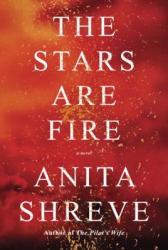
The largest fire in Maine's history is the catalyst of change for Grace Holland, who is left while five months pregnant with her two toddlers as volunteers, including her husband Gene, battle the 1947 blaze. They survive, even if their town does not. But their lives are forever changed. The 24-year-old awaits news of her husband's fate, while homeless, penniless and facing an uncertain future. Grace embraces her new freedom after years of a "sense of something wrong" and strives out on her own to support herself, raise her family and yes, find love. But then her husband returns, a scarred, bitter man. The tense pacing of the fire scenes are well done. But it is the story of a young woman discovering her inner strength while facing oppressive social mores that resonates in this final romantic novel by the author of The Pilot's Wife and The Weight of Water.
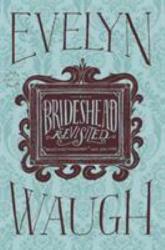
This is the book to read when you're up for lofty prose fiction that's readable, sophisticated, and becomes gradually more and more that of a delightful meandering upon a grandeur of intricate reminiscence, which, though, it may seem a meandering at first, reveals itself soon to be very much otherwise, instead, the exact opposite—this author never wanders, never guesses, but totally knows where he's expertly taking you—Evelyn Waugh, I realized, was truly a master, he absolutely wins the contest for your literary respect, telling, not a delightful, but a painful story remembered in part from the initial mobilizing of the second world war back to the 1920s, with a thoroughly nostalgic march forward in time from then, a growing up story in an exceedingly high society, I mean, not just aristocratic, like you'd expect in a novel written in the kind of British high style of Brideshead Revisited, but cream of the crop top, the tiptop aristo-of the-cratic. Waugh's writing is proportionately as great as this reviewer's is stilted. This book deserves your time. I put off reading it for a long time. I thought it might be impenetrable. I wonder what's like to listen to?
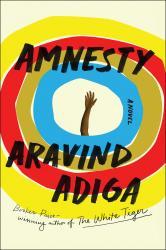
Danny is an undocumented immigrant from Sri Lanka living in Australia. As he's undocumented, he works as a cleaner and gets paid under the table. One day, he is contacted by the police as one of his clients had been murdered. Danny realizes that he likely knows who the murderer is, but has to decide whether or not to share that information with the police. If he does talk to the police, his undocumented status will likely be discovered and he would likely be deported.
This book spans one day in Danny's life, but flashes back to show you how and why he ended up as an undocumented person in Australia. And wow, that's a hard, scary life. The book both calls attention to the unfair, and frankly quite Draconian, immigration policies of Australia and presents a really interesting ethical dilemma. The central question of the book is kind of "what do we owe to each other"? Does Danny have a responsibility to turn in the murderer, even if it means his own life will be irreparably changed for the worse? Danny grapples with this question for much of the book, and it's a really interesting thought experiment. Really, my only complaint is that the last third or so of the book is really repetitive; I found the first two thirds to be fairly riveting.
Folks who are interested in ethics or who are interested in the hardships of the immigrant experience should definitely pick this book up. 3.5 stars. I really liked the first 2/3.
Thanks to Scribner and Netgalley for the eARC which I received in exchance for an unbiased review. Amnesty is available now.
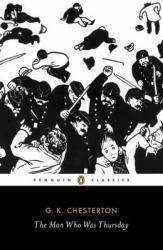
On the surface, The Man Who Was Thursday has all the markings of a witty thriller satire. Unfortunately, as the subtitle of this work is “A Nightmare,” things don’t necessarily stay coherent to the end. It’s not that The Man Who Was Thursday is terrible, but rather that it loses focus and becomes absurd the longer it continues. And perhaps that’s the greatest tragedy of this book: that it could have been a solid story if it didn’t devolve into a nightmare at the end.
I certainly liked plenty of aspects of the early parts of this book. Infiltrating an anarchist society with day-of-the-week codenames. The revelation that few members of said society were actually who they said they were. The conspiracy and twists as the protagonists and antagonists get flipped on their heads. Of course, this last bit is when things started going downhill. Perhaps it’s that odd British humor that influenced the weird bits, but the story probably could have done without all the randomness near the end. In fact, making the whole thing into a nightmare lessens the overall impact of the story, since there is doubt that any of it happened at all.
I’m sure that books like The Man Who Was Thursday require extensive footnotes and analysis to understand. I’m sure this book is assigned to English classes as an example of deep and thoughtful prose. The problem is that I’m mainly reading for entertainment. I don’t have the time to sit down and pore over all the analysis of a book like this. For my money, I think I’ll stick to the James Bond series for spies with code names infiltrating secret societies. At least then, I know the result is closer to reality than whatever this book contains.
A weird book that could have been an excellent thriller satire, I give The Man Who Was Thursday 3.0 stars out of 5.
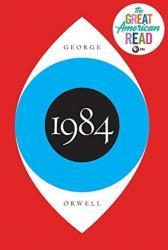
1984 introduces Winston Smith as the primary character. Smith is a middle-aged man that lives within a dystopian society in April of 1984. Being nearly 4 decades after World War II and just a couple of years after the apparent Atomic Wars, Smith lives through the totalitarian state of Oceania, where is activity is consistently surveyed. At this point, Smith attempts to relocate himself from this totalitarian state in order to put him back to normal behavior.
1984 is another novel involving a dystopia, however, it stands out for its strong character development. The premise of the story is heavily shown through the setting, as it demonstrates a controlled and tyrannical lifestyle.
Reviewer Grade: 11



 Ruth Holley Library will be temporarily closed for approximately one week starting Mon., Dec. 2 to complete roof repairs.
Ruth Holley Library will be temporarily closed for approximately one week starting Mon., Dec. 2 to complete roof repairs.